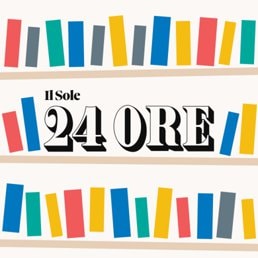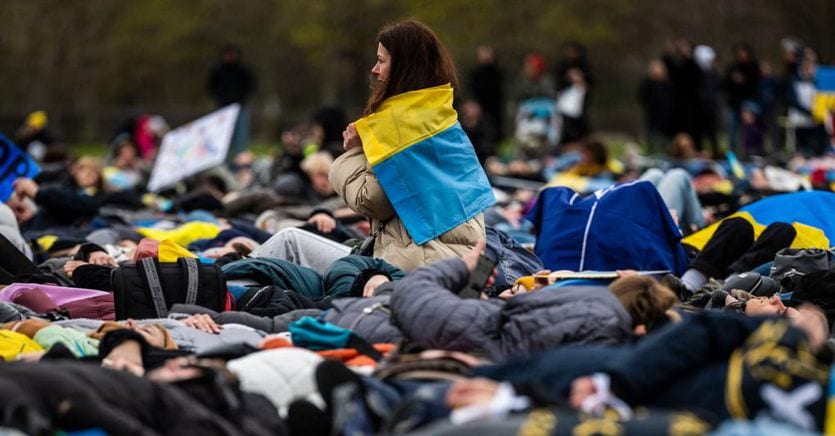Let’s face it: the images that come from the war in Ukraine plunge us into the past, into the era of nation states, of the cold war, and into the idea that the larger the territory, the stronger the state that occupies it. Indeed, as Santi Romano said: “the State does not have its own territory, it is its territory”.
Patriotism and nationalism
And so we witness the stubborn will of the Russian government to occupy portions of the Ukrainian one, as if the largest state in the world, namely Russia, did not already have enough territory. These twentieth-century images also make us rediscover words that have never completely faded away, such as patriotism and nationalism, which until yesterday, in the era of globalization, seemed faded to us, so much so that most would not even know how to distinguish them. Moreover, even many authors who have recently addressed the topic, have different opinions. Some, such as Christian Raimo (Against the Italian identity, Einaudi 2019), think in fact that the crisis of liberal democracies is causing obsolete categories to re-emerge around the concepts of nation, state, homeland. Others, like Sarah Mosole (Ten false myths about sovereignty, Excalibur, Milan 2021) believe instead that national sovereignty is today the only barrier to the excessive power of the markets; the only way to bring the community back to the center of politics. And they describe nationalism as a jumble of participatory, creative and egalitarian virtues, trait d’union between rational thought and tradition (thus Yael Tamir, The reasons for nationalism, Bocconi University, 2020 and Dominique Venner, What is nationalism? forest 2021). Still others, such as Paul Coyer (The Ethics of Nationalism, New World 2020) blame the perception gap between globalist elites and national electorates for many upheavals in contemporary politics.
In short, many theories, all legitimate, which however find it difficult to explain the harsh, brutal reality that the war in Ukraine overwhelmingly gives us. In this light, the difference between patriotism: that is, love, attachment and defense of one’s community, and nationalism: that is, the idea that one’s values and interests deserve to prevail over those of others, seems to become clearer. But is it really so? What if the Russians perceived the lands now occupied by Russian minorities as unredeemed lands, like Corsica for Garibaldi? Or of Istria and Dalmatia for Nazario Sauro and Cesare Battisti? But there is also more to the Ukrainian war: like that great army of operators of the global economy which, with their computer, communication, financial and energy supply networks, has joined forces to fight the Russians far more effectively than any other. army. In fact, what about Elon Musk who restores Internet connections (with his Starlink) in Ukraine? of Google and Meta boycotting users, Anonimus attacking institutions and economic operators and the Swift network, which isolates Russian banks?
“Weaponized networks”
Until yesterday we perceived these realities as networks of sharing and transnational dialogue. Today we discover that they are “weaponized networks” (H. Farrel and A. Newman, Underground Empire, 2019 and, most recently, R. Forumohart, in the Financial Times of 7.3.2022), used to exclude, isolate, sanction. In short, we believed that interconnections were an effective antidote to wars. Not only have we discovered that they are not, but that they themselves can become weapons. In the Ukrainian affair, which sees them united against an invading state, this reassures us. But what if, in the future, they were to join forces again for less meritorious ends? So here we are at the point: are patriotism and nationalism, as an expression of a lost communitarianism, destined to re-emerge also to stem similar phenomena? If so, we might as well realize that the borderline between the two is blurred: trespassing is easy. This is why patriotism should not be taken for granted. If you want to develop it, avoiding that it degenerates into something else, it must be taught and cultivated, first of all recovering its substratum: the more virtuous sense of belonging to a community. But the task, especially for us Italians, is not easy. Luigi Pirandello had defined every Sicilian as “an island within an island”, thus wanting to stigmatize a fact that is not so much physical, linked to the condition of insularity, but mental, cultural, aptitude typical of many other Italians. More generally, typical of many Westerners, affected by that rampant individualism that always leads them to perceive the community as the place in which to derive maximum advantage in favor of themselves and their own close circle of affections and interests.

This is the figure of an antinomy between the individual and the community which becomes its fracture and which generates some of the phenomena just described. Thus also the information and communication networks, when they seem to form a community, do so with the paradigms of private and entrepreneurial initiative. They become systems of interconnection between individuals who remain as such. And the idea that this paradigm can take on universalistic connotations, driven by economic strength, collides (as Serge Latouche said) with “other ways”, certainly more traditional, of conceiving the community.
